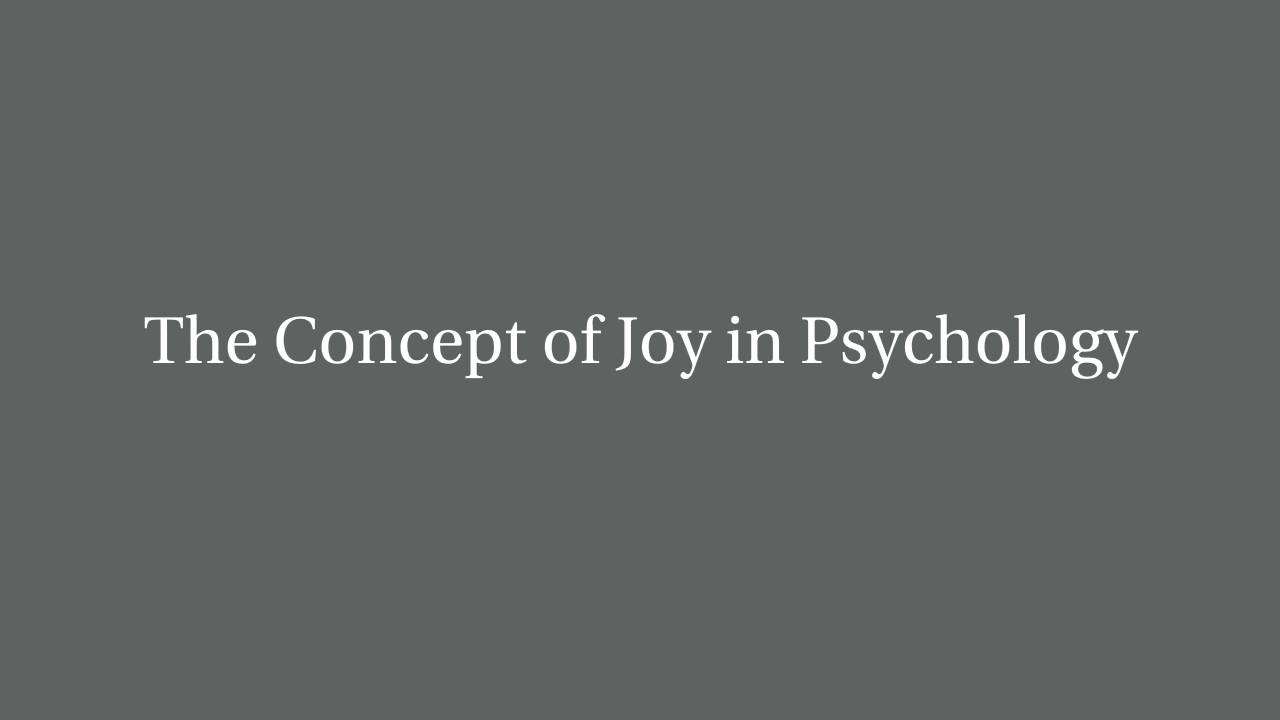The Concept of Joy in Psychology

The concept of joy is often discussed in psychology. Joy is accompanied by the experience of satisfaction with oneself and the surrounding world. This complex and abstract feeling has no location since it captures the entire body. Joy brings much fun and satisfaction to people and encourages them to enjoy life.
According to my personal experience, joy is a pleasant, desirable, useful, and positive feeling which in general terms can be called a sense of psychological comfort and well-being. Douglas (53) believes that when a person experiences joy, he or she is in a state of relaxation or play. For example, a child does not experience any psychological or physical stress; therefore, he or she is careless and feels at ease. Feelings that form the essence of child’s joyful experience are reproduced later in the experience of an adult. Thus, a joyful child grows up into an adult who is more confident and knows the meaning of life. Furthermore, when both children and adults feel loved, they become satisfied with themselves and the world. As a result, they can overcome any difficulties.
It is a well-known fact that joy arouses a feeling of power and strength. Experimental studies support the idea that there is a strong positive relationship between indicators on the scale of joy and the energy performance scale (Hanh 124). Therefore, the feeling of power that accompanies the joyful experience makes a person self-confident. Joy intensifies a personal susceptibility to the world, allowing individuals to admire and enjoy it. A joyful person sees the world in all its beauty and harmony. Moreover, he or she sees people at their best. For example, an individual is more inclined to enjoy an object rather than critically analyze and conceptualize it. The feeling of joy makes a person realize his or her unity with the world. Therefore, joy is not just a positive attitude to the world and oneself, but rather a kind of connection between man and the world.
It is known that joy is a result of positive emotions. The feeling is very similar to pleasure but differs from it in terms of some characteristics. Joy is rather individual as different people have their own sources of joy. For instance, some individuals find joy in painting, while others experience positive emotions from sport or parenting. Many findings reveal that people become joyful because of different positive emotions (Douglas 61). However, what brings joy to one person will not necessarily please another. Individuals often feel joy in action, motion or realization of interesting ideas. Joy has a positive effect on the human body. In contrast to joy, pleasure is associated with the consumption and satisfaction of physiological or psychological desires.
To conclude, joy evokes positive emotions expressed in a good mood and sense of fun. Different people have their individual sources of joy. Joy is a strong feeling that differs from pleasure. The sense of joy does not lead to satiation. All in all, joyful people have a positive attitude towards life and feel healthier and happier.
Works Cited
Douglas, Jerome N. A Polemical Preacher of Joy: An Anti-Apocalyptic Genre for Qoheleth’s Message of Joy. Pickwick Publications, 2014.
Hanh, Thich Nhat. Work: How to Find Joy and Meaning in Each Hour of the Day. Parallax Press, 2012.